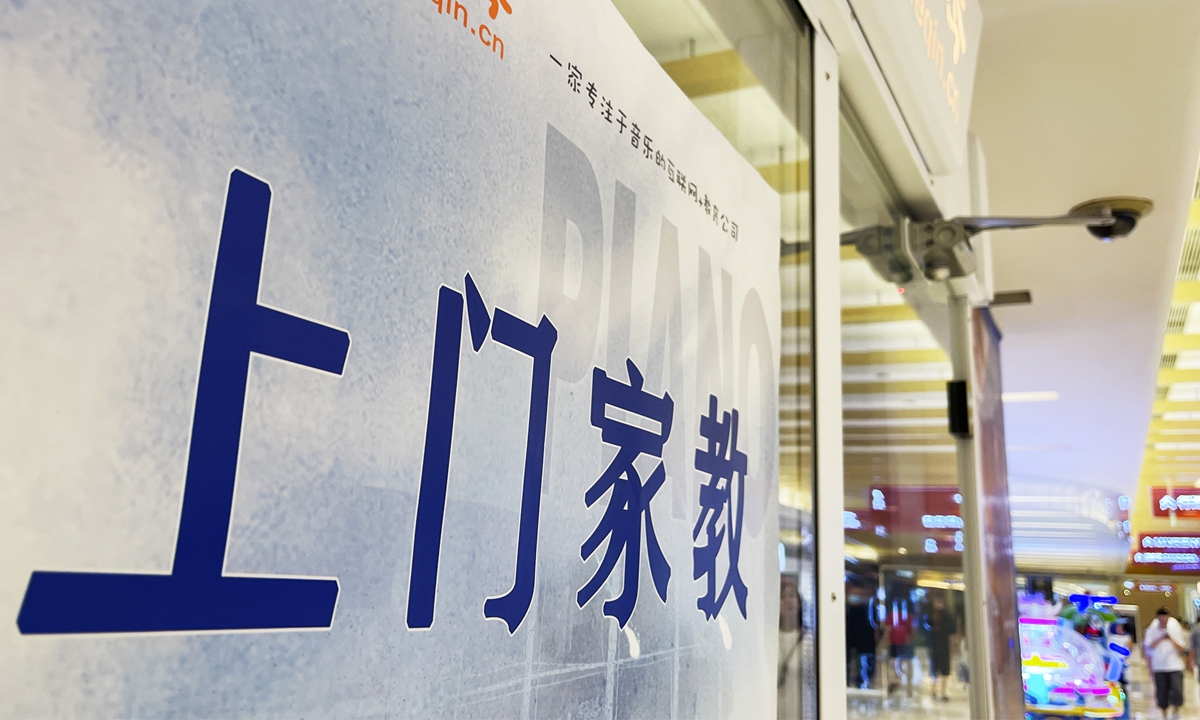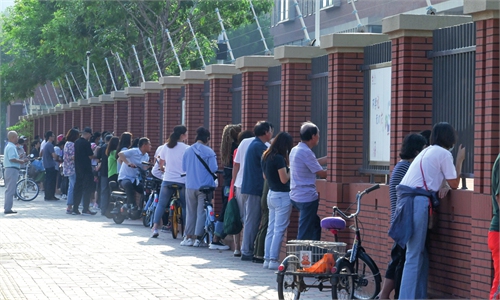College students without teaching qualifications prohibited from subject-based tutoring: Hangzhou education authority

An advertisement says it offers "door-to-door tutoring services" in a Beijing shopping mall. Photo: VCG
College students without teaching qualifications are prohibited from carrying out subject-based tutoring for secondary school students in Hangzhou, capital of East China's Zhejiang Province, the Hangzhou education authority said on Friday, in response to parents' questions over whether college students can proceed with tutoring.
For those college students obtaining teaching qualifications, they have to conduct tutoring in accordance with the country's latest policies to ease the burden of excessive homework and off-campus tutoring for students already undergoing compulsory education, released in July this year.
This topic also triggered a discussion among Chinese netizens as most of them had the experience of tutoring when they were studying in college. Some argued that the demand for private tutoring is still huge, as anxious Chinese parents are eager to hire private tutors to help their children in the fierce competition.
However, based on the latest policy, subject-related tutoring cannot be conducted on weekends, holidays and during winter and summer vacation. Most college students used their free time during holidays to provide tutoring services to teach students mainly in subjects Chinese, Math and English.
According to the "double reduction" regulation, "the space and time for college students' private tutoring has been reduced," which is why some universities have suspended the private tutoring services, Xiong Bingqi, director of 21st Century Education Research Institute in Beijing, told the Global Times on Tuesday. For instance, East China Normal University (ECNU) in Shanghai has terminated its relevant tutoring businesses.
This might cause "more disputes between parents and college students" as underground tutoring will not be supervised by regulators, Xiong said. College students who provide illegal tutoring will be punished, however, which might negatively impact their further study or their career prospects in the public sector, according to Xiong.



